Christian Blau
talktalk
(2003)
exhibited at:
2007 beat gallery, Berlin, (group)
2004 Galerie Ockhardt, Essen, (solo with cataloge)
2003 'index', Kunsthaus, Hamburg, (group with cataloge)
talktalk
(2003)
exhibited at:
2007 beat gallery, Berlin, (group)
2004 Galerie Ockhardt, Essen, (solo with cataloge)
2003 'index', Kunsthaus, Hamburg, (group with cataloge)
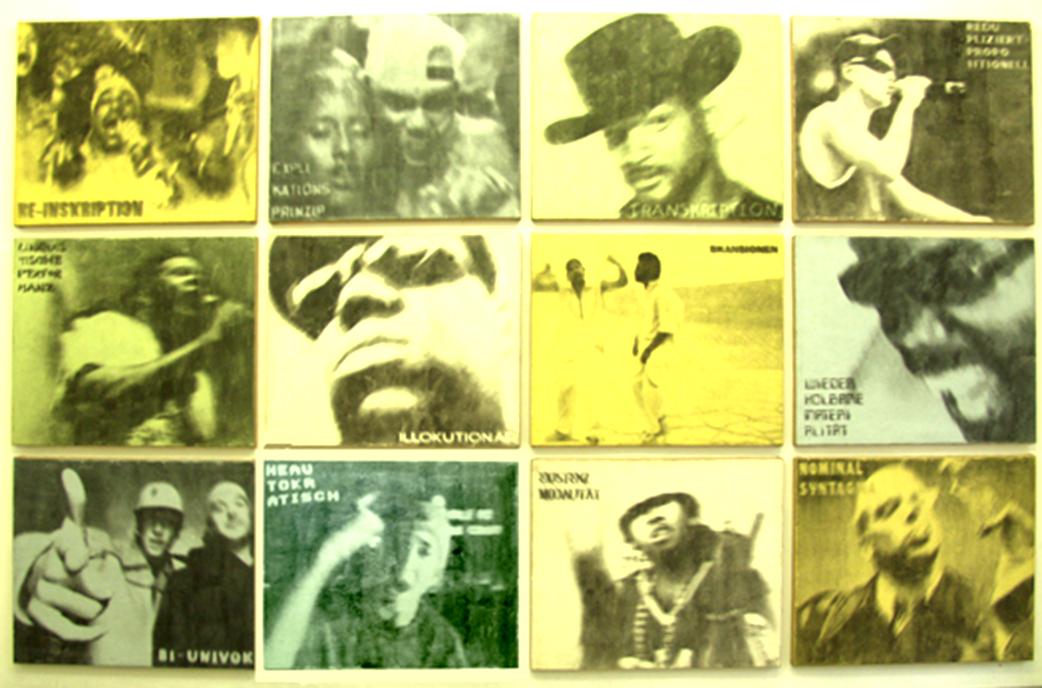
Full Tableau
12 x (100 x 120 x 6 cm)
mixed media on hessian
christianblau 2003
12 x (100 x 120 x 6 cm)
mixed media on hessian
christianblau 2003
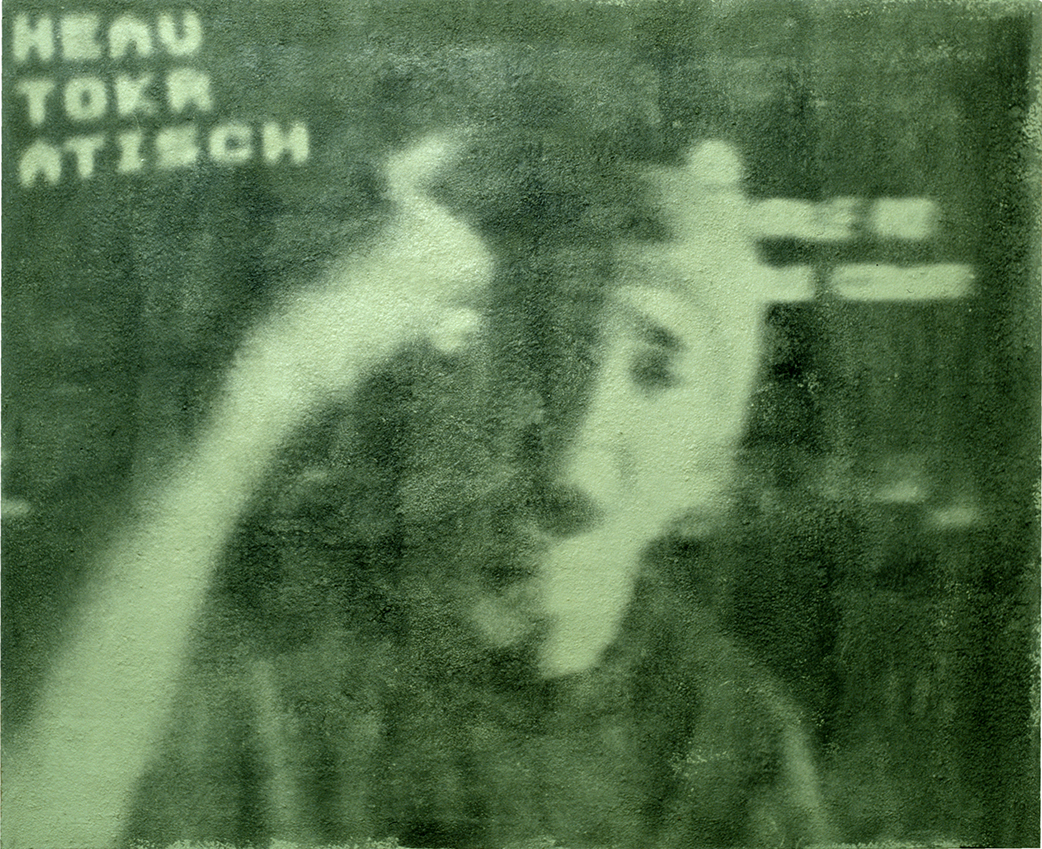
Heautokratisch
100 x 120 x 6 cm
mixed media on hessian
christianblau 2003
100 x 120 x 6 cm
mixed media on hessian
christianblau 2003
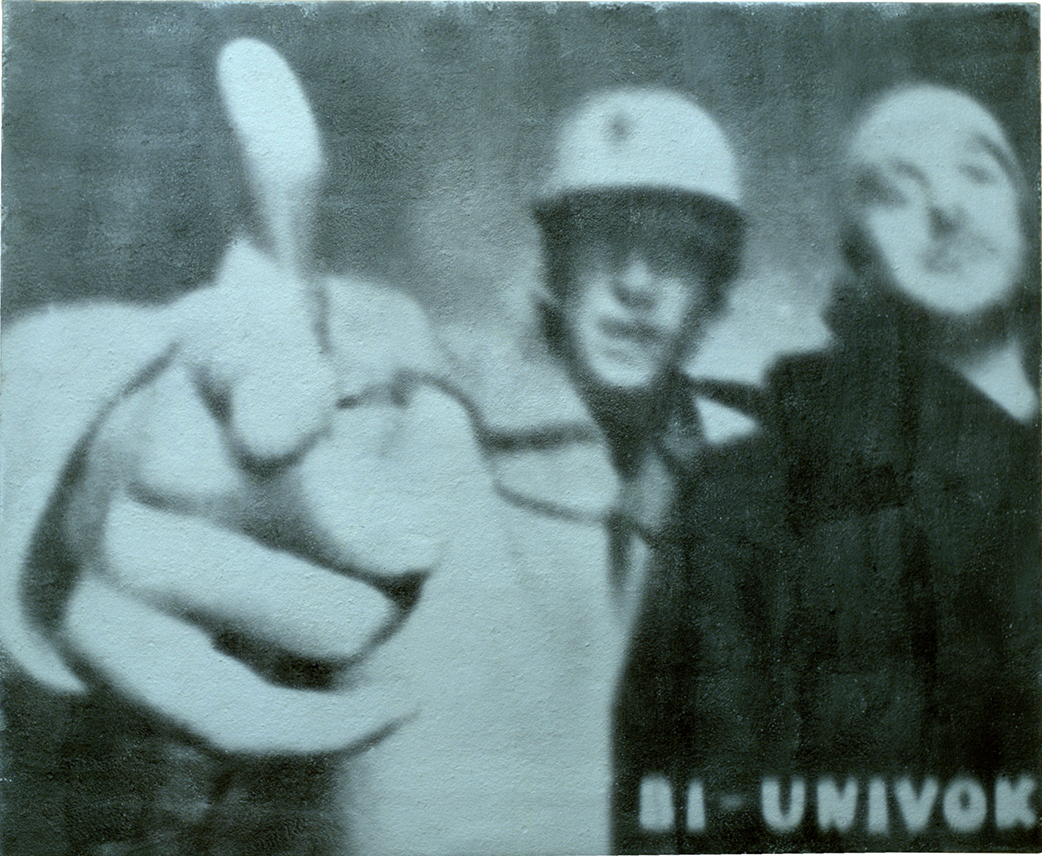
Biunivok
100 x 120 x 6 cm
mixed media on hessian
christianblau 2003
100 x 120 x 6 cm
mixed media on hessian
christianblau 2003
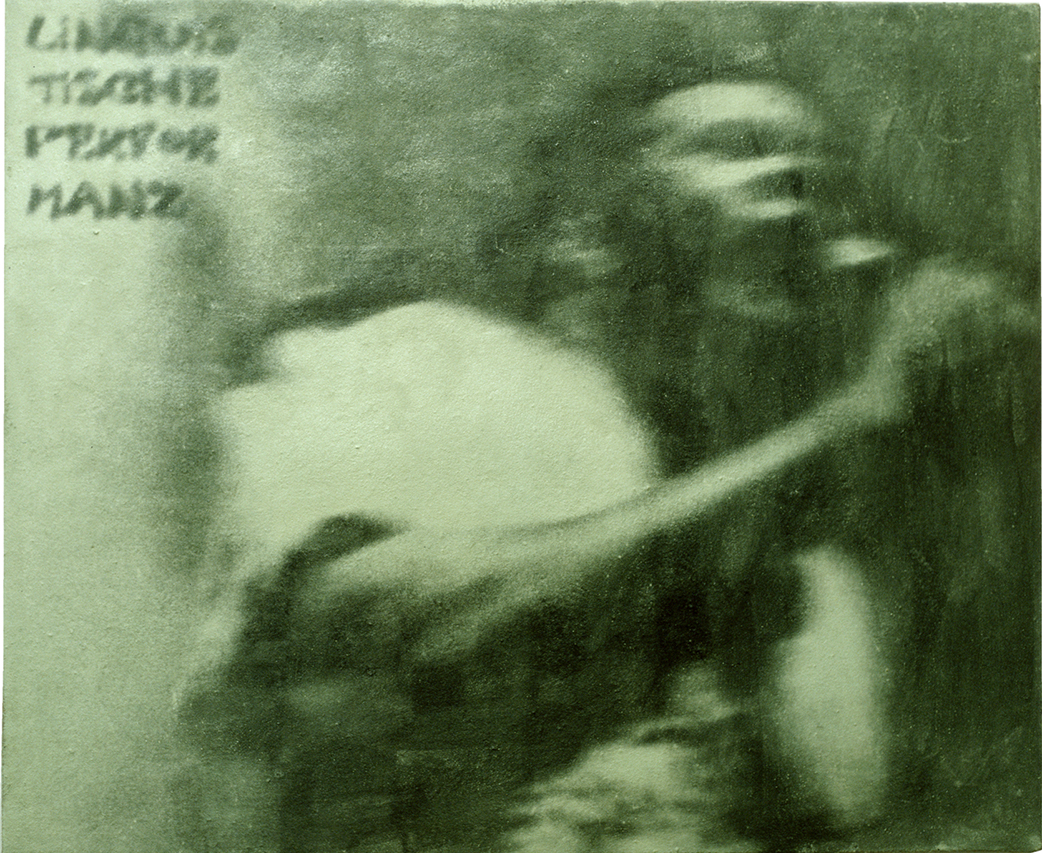
Linguistische Performanz
100 x 120 x 6 cm
mixed media on hessian
christianblau 2003
100 x 120 x 6 cm
mixed media on hessian
christianblau 2003
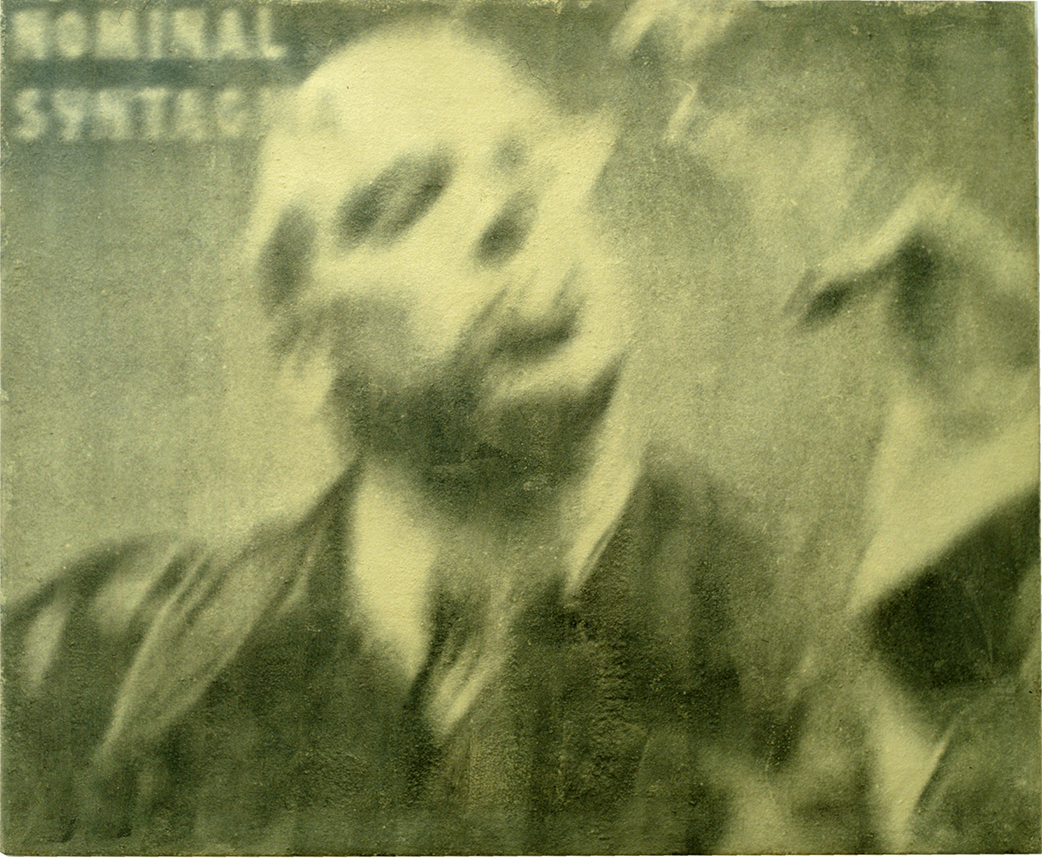
Nominal Syntagma
100 x 120 x 6 cm
mixed media on hessian
christianblau 2003
100 x 120 x 6 cm
mixed media on hessian
christianblau 2003
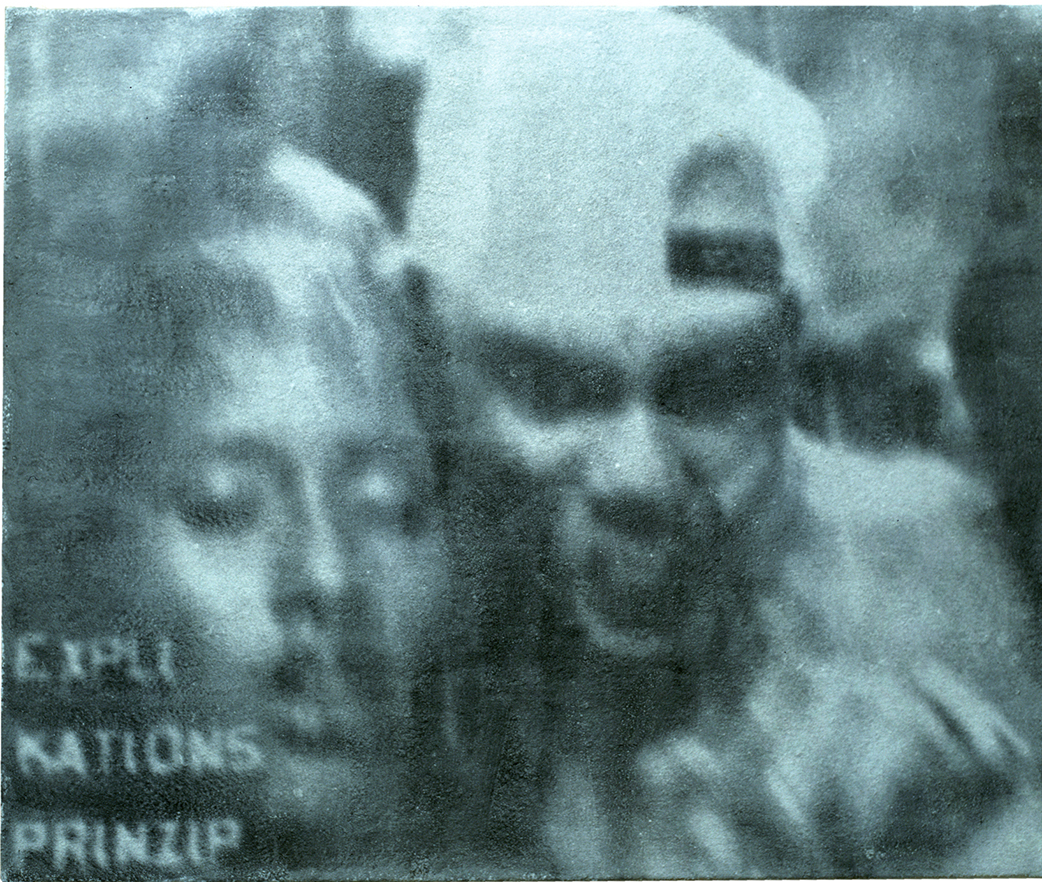
Explikationsprinzip
100 x 120 x 6 cm
mixed media on hessian
christianblau 2003
100 x 120 x 6 cm
mixed media on hessian
christianblau 2003
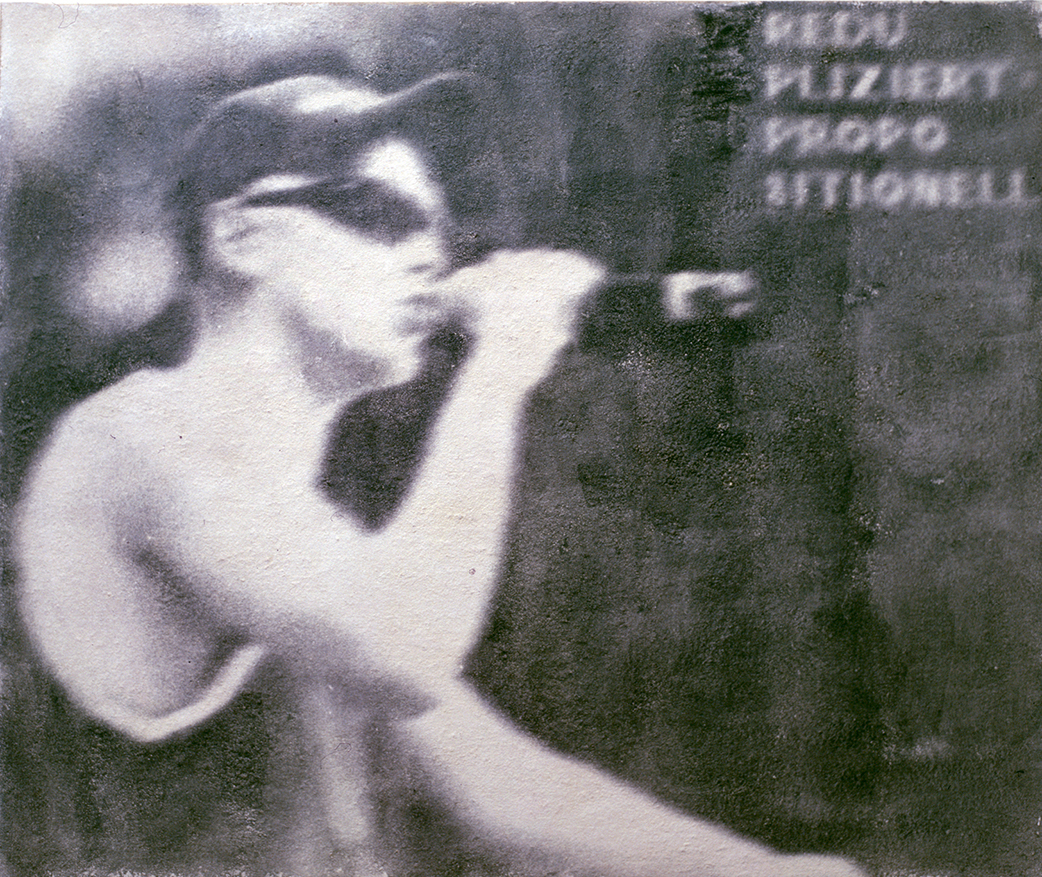
Redupliziert Propositionell
100 x 120 x 6 cm
mixed media on hessian
christianblau 2003
100 x 120 x 6 cm
mixed media on hessian
christianblau 2003
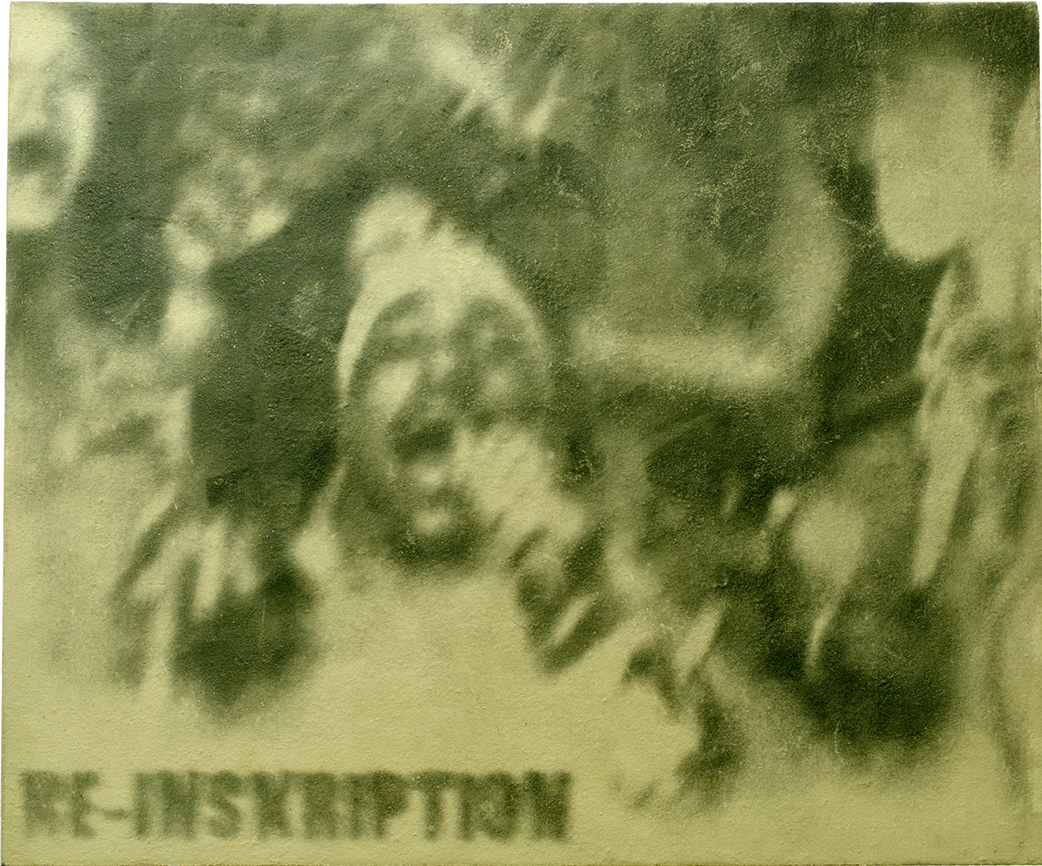
Reinskription
100 x 120 x 6 cm
mixed media on hessian
christianblau 2003
100 x 120 x 6 cm
mixed media on hessian
christianblau 2003
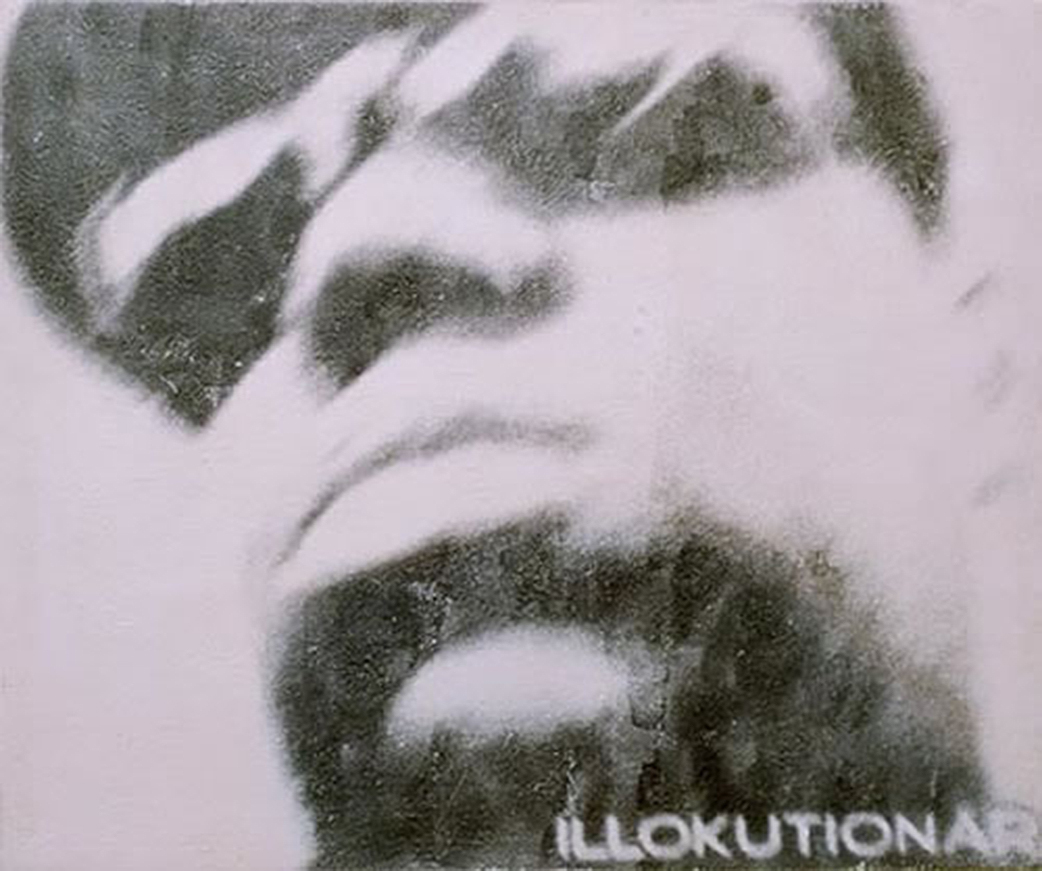
Illukutionär
100 x 120 x 6 cm
mixed media on hessian
christianblau 2003
100 x 120 x 6 cm
mixed media on hessian
christianblau 2003
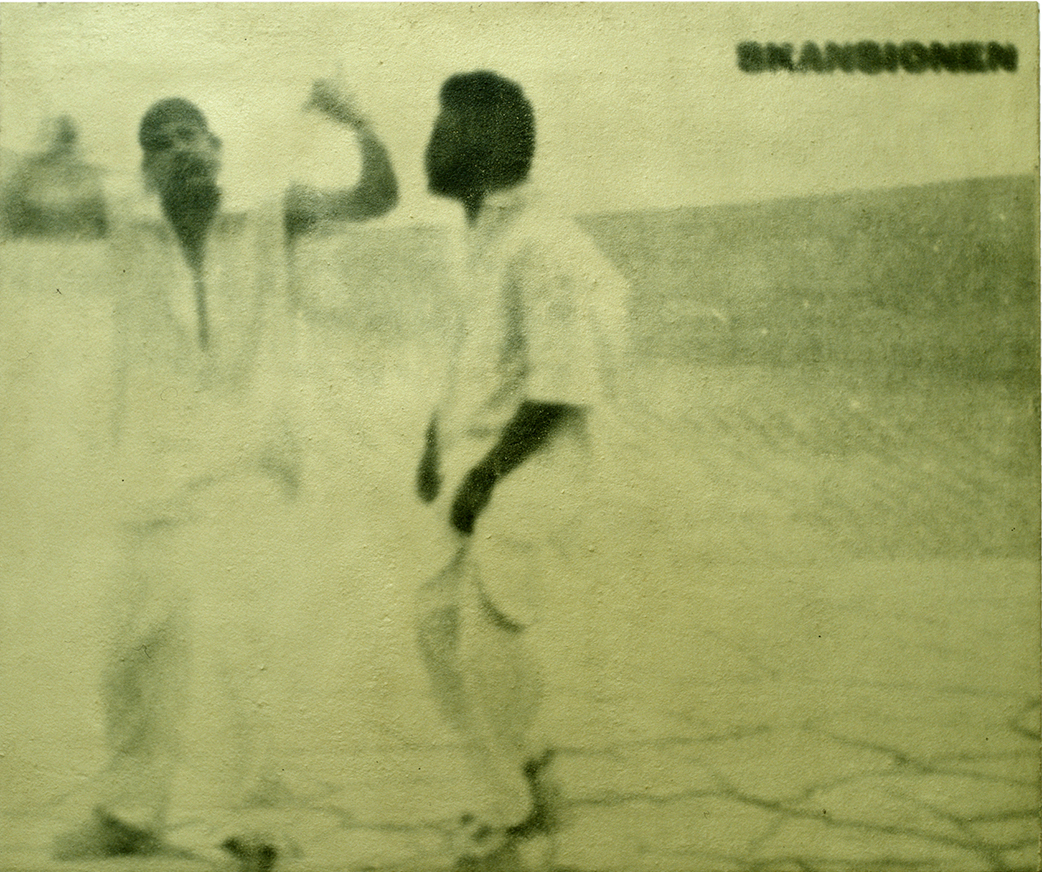
Skansionen
100 x 120 x 6 cm
mixed media on hessian
christianblau 2003
100 x 120 x 6 cm
mixed media on hessian
christianblau 2003
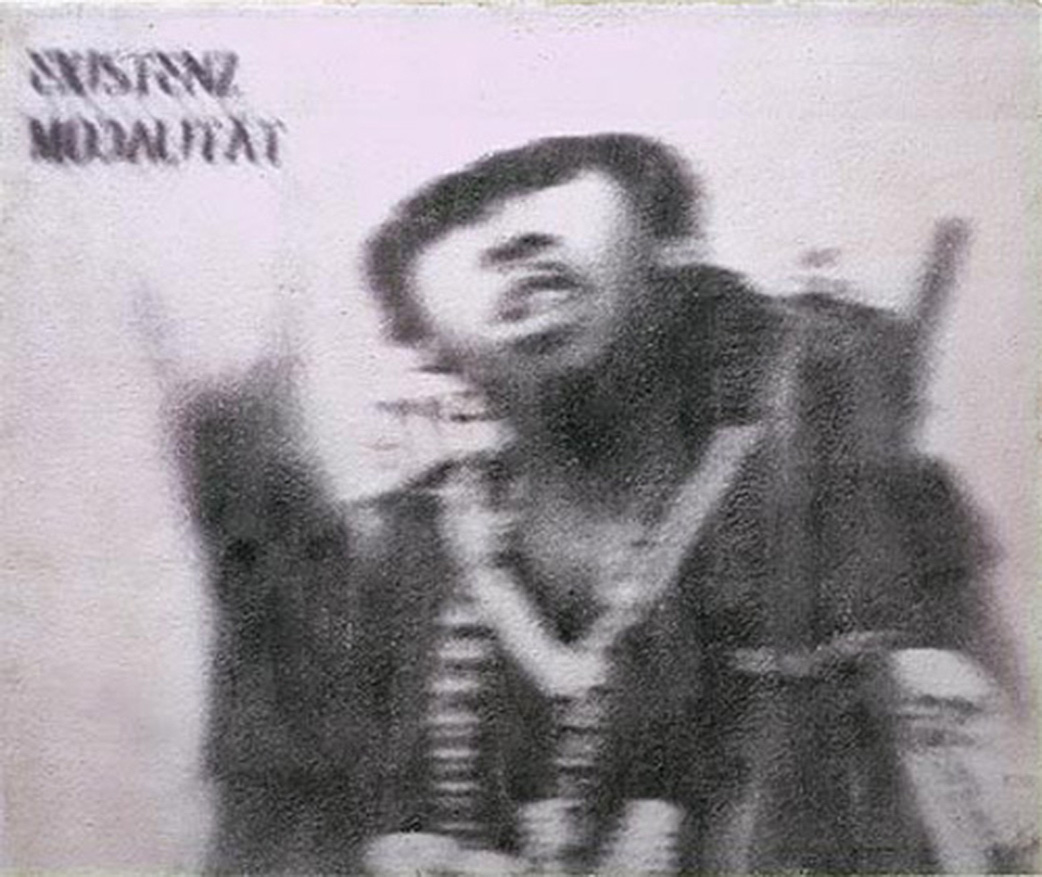
Existenz Modalität
100 x 120 x 6 cm
mixed media on hessian
christianblau 2003
100 x 120 x 6 cm
mixed media on hessian
christianblau 2003
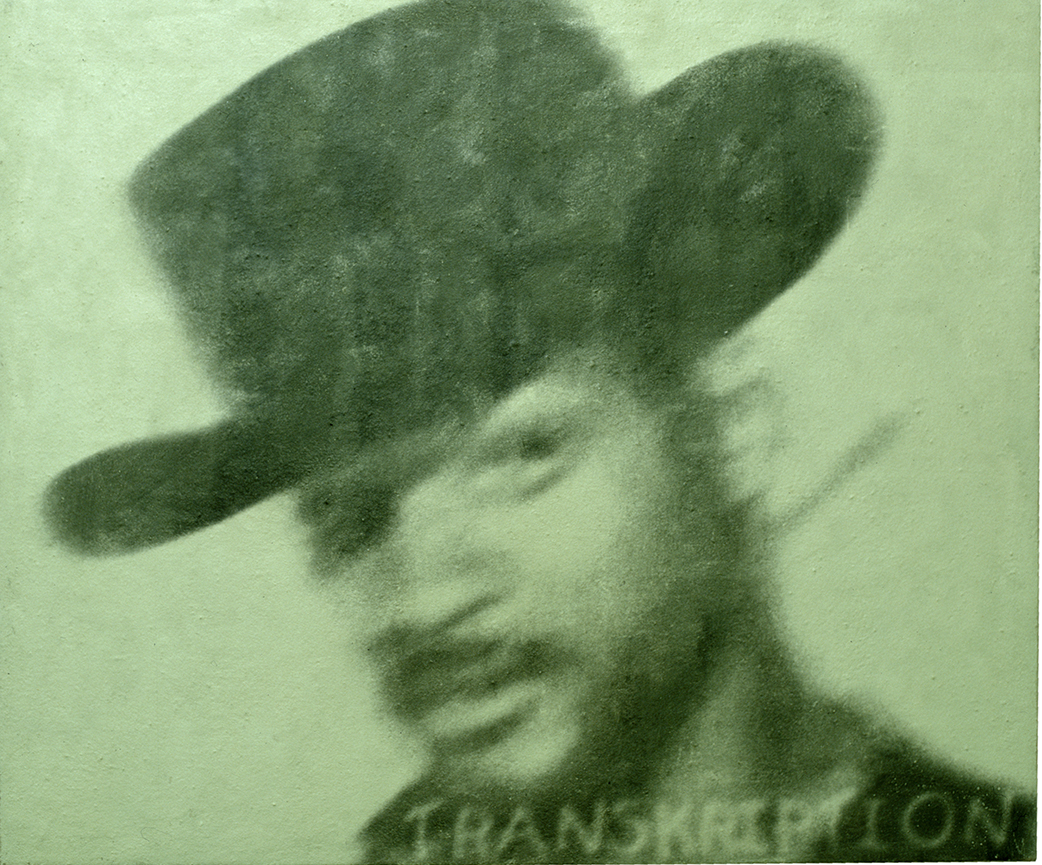
Transkription
100 x 120 x 6 cm
mixed media on hessian
christianblau 2003
100 x 120 x 6 cm
mixed media on hessian
christianblau 2003
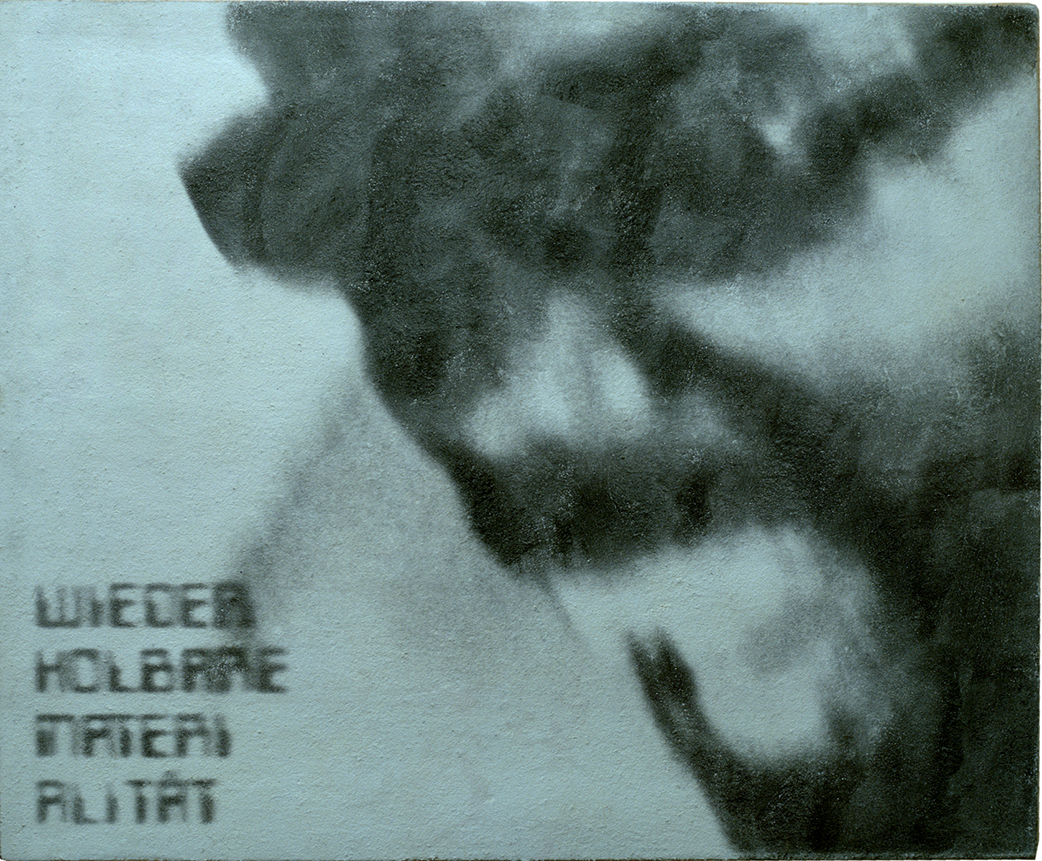
Wiederholbare Materialität
100 x 120 x 6 cm
mixed media on hessian
christianblau 2003
100 x 120 x 6 cm
mixed media on hessian
christianblau 2003
Christian Blau's Biopolitics: YEO-MAN, RESPECT!
by Stevie Schmiedel
Are these photographies or paintings? Christian Blau's very own technique
creates an effect which, according to the philosophy of Gilles Deleuze,
could be termed affect: the blend of two contrasting techniques evokes a
feeling of hypnosis. Sand is spread onto hessian and is covered
with photographic emulsion. Onto this rough landscape, a slide is
projected. This construct is fixated in a self-made creation of tubs, pipes
and flower pots, a scene reminiscent of an urban back yard. The images
thus produced come close to looking like prints, but only close: here and
there, out-lines are out of focus, look smudged. Nature meets technology,
self-made versus ready-made photo paper: these contrasts melt into
something that makes one linger and stare. The images present cool
rappers with sunglasses, posing for the camera – they could be MTV stills.
Eminem's hat is pulled deep into his face, and Missy Elliot's fist shows us
the finger. The images are subtitled with bits of text that look like rap lines,
but sound strange. They do not fit, extracted as they are from Michel
Foucault's "Archaeology of Knowledge": high-art intellectual phrases that
Puff Daddy would never slam. Contrasts, again, that -combined - create
meaning, one that does not make immediate sense, but nonetheless, holds
us compelled.
Foucault is one of the 'saints', says Christian Blau, whom an artist must be
fit to quote in the holy temple of the art gallery. He only skim-read
"Archaelogy of Knowledge" and tried to access it through secondary
literature. And that's why he does not feel fit to participate in the
word games of the intellectuals, the subversive minority. Whose work is
said to be political exactly because nobody understands it, and because it
keeps itself afloat somewhere in-between ironic pop-culture and
statements on the philosophy of linguistics. Christian Blau is frank: the word
jungle of the intellectual artists' society is just as 'fat', as phallic and
ostracising, as the hip-hop mafia: no difference between black-rimmed
glasses and black sunglasses. Behind both hide little fish who desperately
want to be big.
Hip-hop stems from black recitatives such as calypso and soka, afro-
american music that developed into raeggae in Jamaica, and,much later,
into hip-hop in the Bronx. Thanks to MTV and Motown in the last two
decades, the language of the ostracised reached the mainstream. Their
victory against the high arts, which they won using their own language,
telling their own sto-ries from the ghettoes, and fighting a war against
exclusion and racism, is celebrated even in the arts and social sciences:
it's official. Blau's images show that now, something has become 'big'
that must and may not be criticised due to its origin in a political history of
an oppressed minority. Same applies to the language of the intellectuals of the
Left, the artists and art critics, whose expression of a complex and
subversive politicality can only be understood by an ostracising minority.
In "Archealogy of Knowledge", but even more in his "Will to Knowledge",
Foucault describes that we cannot escape power structures: they
constantly produce our psyche and our modes of resistance against them.
Forms of resistance such as Blau's protest can, thus, not be seen as
actions of independent agents who stand outside of power. They are
embedded within a power structure which they can merely shift, but not
change. And let's face it: Christian Blau would love to 'slam it' and speak
Foucault's language fluently. The normalising practices of the self, in this
case an interaction of the media, the cultural ministries, private sponsoring
and art schools, determine who is trendy, and thus, who has power.
Consequently, the rebel is already sketched out: in Will to Knowledge,
Foucault describes how hetero-normativity produces a homo-sexual
subculture, who itself would love to be the norm, acknowledged, and thus,
phallic. A Foucauldian genealogy aims at revealing these correlations, to
disclose power structures without suggesting an 'outside' that could
present an alternative. For Foucault, there is merely the presentation of the
complex interaction of normative discourses; this exposure in itself can
produce shifts in power structures and hence defines what Foucault stands
for: biopolitics.
Blau's work reveals the production process of opposites that, really, belong
together. Anonymous technology and self-made, or nature and culture, are
just as close in his art as are power and resistance. The rough fabric of his
canvases disclose that wonders of technology can be produced d-i-y style
with natural materials. He reveals himself as one who would like to
participate in the making of meaning while simultaneously critising the 'fat'
guys. In a Foucaultian sense, this makes sense. And this simultaneity does
not hinder us in questioning the elitist language of the 'saints', nor the
political relevance of hip-hop. On the contrary. Gilles Deleuze, whose early
works accompanied Foucault's writing, created concepts such as the affect
or the image-temps in order to ascribe effects, such as generated by
Blau's work, their own political efficacy. Moments in which an inbetween
can be perceived, a unison of opposites - and only real artists, according
to Deleuze, can produce such moments - present real simultaneity, in which
there is not only black and white, but a multiplicity of continuously shifting
truths. In Blau's work, this simultaneity can be experienced without having to
fight our way through Foucault and Deleuze, but by simply being
hypnotically drawn into the work. This deserves respect, last but not least
the respect of the 'saints'.
And enables Blau to casually declare:
Let's talk about it, but please take off these silly glasses first.
SMS 11/05/03
Christian Blaus Biopolitik: YEO-MAN, RESPECT!!!
von Stevie Schmiedel
Photographie oder Malerei? Christian Blaus Sand-Technik erzielt einen
Effekt, den man im Sinne des Philosophen Gilles Deleuze Affekt nennen
könnte: das Verwischen von zwei sich widersprechendenTechniken
bewirkt ein Gefühl der Hypnose.
Sand wird auf Juteleinwand gewischt, mit Entwickler bestrichen.
Auf diese rauhe Landschaft wirdein Dia projeziert.
Das Ganze wird in einer eigenen Wannenkreation aufwendig fixiert,
Rohre und Blumenkästen errinnern an einen urbanen Hinterhof.
Die fertigen Images sehen fast aus wie gedruckt, aber nur fast: hier und
da sind Konturen leicht verzerrt. Natur trifft Technik, Self-made statt
gekauftes Fotopapier, und diese Gegensätze verbinden sich zu etwas,
das einen verwirrt verharren läßt. Die Bilder zeigen Rapper mit
Sonnenbrillen und coolen Posen, es könnten MTV-Stills sein. Eminem
trägt seine Mütze tief im Gesicht und Missy Elliots Faust zeigt uns den
Finger. Sie sind untertitelt mit Text-Auszügen, die wie Rap-Zeilen aus-
sehen, aber fremd klingen. Sie passen nicht, denn sie sind Michel
Foucaults 'Archäologie des Wissens' entnommen:
Begriffe einer intellektuellen Hochkultur, die Puff Daddy sicherlich
nie slammen würde. Wieder Gegensätze, die zusammengefügt einen
Sinn ergeben, den man nicht zuordnen kann, einen aber trotzdem
ansprechen.
Foucault ist einer der 'Säulenheiligen', sagt Christian Blau, die ein
Künstler zitieren können muss in den heiligen Tempeln der Galerien.
'Archäologie des Wissens' hat er nur überflogen und versucht, sich
durch Sekundärliteratur anzueignen. Und deshalb kann er nicht wirklich
mitmachen bei den Wortgefechten der Intellektuellen, der subversiven
Minorität. Deren Werke gelten deshalb als politisch, weil sie keiner versteht,
und sie sich in der Schwebe halten zwischen ironischer Popkultur und
sprachphilosophischen Zitaten.
ChristianBlau ist direkt: der Wort-Dschungel der intellektuellen
Künstlergemeinde ist ebenso 'dick', so phallisch und ausgrenzend
wie die Hip-Hop Mafia: Kein Unterschied zwischen schwarzen Brillen-
gestellen und schwarzen Sonnenbrillen, hinter beiden verstecken sich
kleine Fische, die mal ganz den Dicken machen wollen.
Hip-Hop entwickelte sich aus schwarzen Sprechgesängen wie Calypso
und Soka, afro-amerikanische Musik, die in Jamaica zum Reaggae,
in der Bronx erst viel später zum Hip-Hop wurden. Die Sprache der
Ausgegrenzten erreichte, dank MTV und Motown, in den letzten
Jahrzehnten den Mainstream.
Zelebriert wird - auch in den Kulturwissenschaften - ihr Sieg gegen die
Hochkultur, den sie mit ihrer eigenen Sprache, mit den Geschichten
aus den Ghettos, im Kampf gegen Ausgrenzung und Rassismus
erringen konnten. Nun, so zeigen Blaus Bilder, hat sich etwas 'breit'
gemacht, was man wegen seiner politischen Herkunft als unterdrückte
Minorität nicht kritisieren darf. Genauso wie die Sprache der links-
intellektuellen Künstler und Kunstkritiker, die eine komplexe und
subversive Politik ausdrücken soll, aber nur von einer ausgrenzenden
Minorität verstanden wird.
In 'Archäologie des Wissens', mehr noch aber in seinem späteren
'Wille zum Wissen' hat Foucault dargestellt, daß wir Machtstrukturen
nicht entkommen können, dass sie unsere Psyche und unsere
Widerstände gegen sie fortwährend produzieren. Gegenreaktionen, so
wie Blaus Protest, sind somit nicht als Aktionen selbstständiger
Agenten zu sehen, die ausserhalb der Macht stehen. Sie sind in eine
Machtstruktur eingebettet, die sie nur verschieben, nicht aber verändern
können. And let's face it: Christian Blau würde auch gerne 'mit-slammen'
und Foucaults Sprache fließend von sich geben. Die Normalisierungs-
praktiken, in diesem Fall ein Zusammenspiel von Medien, Kultur-
behörden, Private Sponsoring und Kunsthochschulen, bestimmen was
Trend ist, und somit, wer Macht hat. Dem folgt, logisch, das der
Rebellende schon vorgezeichnet ist: als Beispiel erklärt Foucault in
'Wille zum Wissen', wie eine zweigeschlechtliche Heteronormativität
eine homosexuelle Subkultur produziert, die selbst gerne Norm,
anerkannt und somit phallisch wäre. Eine Foucault'sche Genealogie
zielt darauf ab, diese Zusammenhänge darzustellen, Machststrukturen
aufzudecken ohne ein 'Außen' zu suggestieren, das eine Alternative
darstellen könnte. Für Foucault gibt es nur das Darstellen des
komplexen Zusammenwirkens von Normativitätsdiskursen; dieses
Aufdecken an sich kann Verschiebungen bewirken und prägt somit
das, wofür Foucault steht: Biopolitik.
Blaus Arbeiten zeigen, wie als Gegensätze produziert wird, was
eigentlich zusammengehört. Anonyme Technik und Self-made bzw.
Natur und Kultur liegen in seiner Kunst genauso eng beieinander wie
Macht und Widerstand. Das rauhe Gewebe seiner Leinwände entblößt,
das Wunder der Technik mit natürlichen Materialien selbst herzustellen
sind. Er entblößt sich selbst als einer, der dort mitreden will, so Sinn
geschaffen wird, während er die 'Dicken' kritisiert. In Foucault'schem
Sinne macht das Sinn. Das wir dabei trotzdem die elitäre Sprache der
'Säulenheiligen' hinterfragen können, genauso wie die aktuelle
politische Relevanz von Hip Hop, schließt diese Gleichzeitigkeit nicht
aus. Im Gegenteil. Gilles Deleuze, dessen frühe Arbeiten Foucault
begleiteten, benutzt Begriffe wie den Affekt oder das Image-Temps um
Effekten, wie Blaus Werk sie erzielt, eine eigene Politik zuzuschreiben.
Momente, in denen man ein 'Dazwischen' wahrnimmt in dem Gegen-
sätze vereint werden - und nur wirkliche Künstler, so Deleuze, können
solche Momente hervorbringen -, zeigen einem wirkliche Gleichzeitig-
keit, in der es nicht nur schwarz oder weiß, sondern eine unendliche
Vielzahl an Wahrheiten geben könnte, die sich immer wieder gegen-
einander verschieben. In Blaus Arbeit werden uns, durch unser
hypnotisches Einbeziehen, diese Gleichzeitigkeiten verständlich, ohne
dass wir uns durch Foucault oder Deleuze qüalen müssen.
Das verdient Respekt, mindestens den der Säulenheiligen.
Und ermöglicht es Blau, enstpannt auszudrücken: Let's talk about it, und
nehmt dazu bitte diese dämlichen Brillen ab.
stevie schmiedel 11/05/03